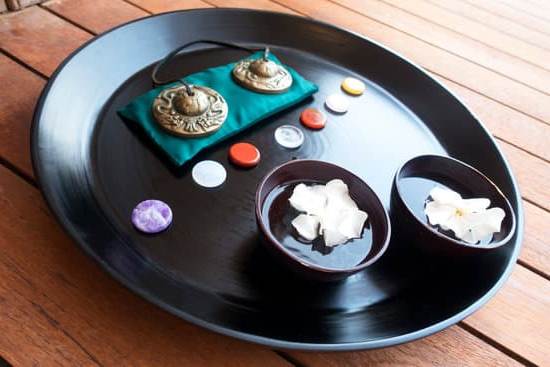The practice of Feng Shui involves the arrangement of objects and spaces to promote positive energy flow, balance, and harmony. When it comes to creating a peaceful and rejuvenating bedroom environment, incorporating Feng Shui principles can greatly enhance one’s overall well-being.
In particular, the inclusion of plants in the bedroom is believed to have a significant impact on improving sleep quality and promoting positive energy. In this article, we will explore the concept of Feng Shui in relation to bedroom design, with a focus on selecting and caring for the best plants to optimize the energy in this space.
Plants have long been recognized for their ability to purify the air and bring a sense of vitality into indoor spaces. In Feng Shui, they are valued for their capacity to attract positive energy while symbolizing growth, renewal, and abundance. Understanding the importance of incorporating plants in the bedroom according to Feng Shui principles is essential for creating a balanced and harmonious environment that supports restful sleep and overall wellness.
Selecting the right plants for your bedroom based on their energy, symbolism, and care requirements is crucial in harnessing their full benefits within a Feng Shui framework. With careful consideration and proper placement, these plants can work synergistically with other elements in your bedroom décor to create an optimal atmosphere for relaxation and rejuvenation.
In the following sections, we will provide guidance on choosing suitable Feng Shui plants for your bedroom, along with tips on placement techniques and maintenance practices to maximize their effectiveness in promoting positivity and tranquility.
Importance of Plants in Feng Shui
The concept of Feng Shui is centered around creating a harmonious and balanced energy flow in the living environment, and the bedroom is no exception. The incorporation of plants in the bedroom plays a significant role in enhancing the positive energy and promoting well-being. In Feng Shui philosophy, plants are believed to purify the air, reduce stress, and create a calming ambiance, all of which are essential for a restful sleep and overall health.
Benefits of Plants in Feng Shui
Plants not only serve as natural air purifiers by removing toxins and impurities from the air, but they also have psychological benefits. The presence of greenery has been linked to reduced stress levels, improved mood, and increased productivity. In the context of Feng Shui, plants are thought to promote positive energy flow and create a sense of tranquility, which is especially important in the bedroom – a space dedicated to rest and rejuvenation.
Significance of Incorporating Plants in the Bedroom
Incorporating plants in the bedroom aligns with the principles of Feng Shui by bringing nature indoors and infusing the space with vibrant energy. Additionally, plants are symbolic representations of growth, renewal, and vitality, all of which contribute to creating a nourishing environment for relaxation and sleep. Selecting specific types of plants based on their energy properties and care requirements is essential for maximizing their benefits within the context of Feng Shui practices.
Choosing the Right Plants
When it comes to incorporating Feng Shui plants in the bedroom, it is crucial to choose the right plants that align with the energy, symbolism, and care requirements necessary for promoting positive energy and improving sleep. Selecting the perfect plants for your bedroom can significantly impact the overall atmosphere and harmonious flow of energy in the space. Here are some guidelines to help you choose the best Feng Shui plants for your bedroom.
Energy
In Feng Shui, plants are believed to bring vibrant and nourishing energy into a space. When choosing plants for your bedroom, consider selecting ones that emit calming and peaceful energy. Look for plants with soft and rounded leaves or gentle flowing shapes to create a soothing atmosphere conducive to relaxation and restful sleep. Avoid spiky or aggressive-looking plants as they may disrupt the peaceful energy of the room.
Symbolism
Another important consideration when selecting Feng Shui plants for the bedroom is their symbolic significance. Certain plants are associated with specific meanings and energies in Feng Shui philosophy. For example, the peace lily is known for its air-purifying properties and ability to promote tranquility, while bamboo symbolizes resilience and flexibility. Choose plants with symbolic meanings that resonate with your intentions for your bedroom, whether it be tranquility, love, or harmony.
Care Requirements
In addition to energy and symbolism, it’s essential to consider the care requirements of the plants you choose. Select low-maintenance plants that thrive in indoor environments and require minimal attention. This ensures that you can easily incorporate them into your bedroom without adding unnecessary stress or maintenance tasks to your daily routine.
Consider factors such as light exposure, watering needs, and potential allergens when choosing plants for your bedroom. By carefully considering these elements – energy, symbolism, and care requirements – you can select the perfect Feng Shui plants for your bedroom that will enhance positive energy flow and contribute to a restful environment conducive to a good night’s sleep.
By carefully adhering to these considerations when choosing Feng Shui good plants for bedroom areas you are sure to reap all their benefits within your personal oasis of relaxation tailored specifically by aspects specifically pertaining feng shui principles on home decor which encompasses not just plant choice but also furniture placement ensuring maximum well-being from every inch of area used daily.
Best Feng Shui Plants for the Bedroom
When it comes to creating a harmonious and balanced environment in the bedroom according to Feng Shui principles, the selection of plants plays a crucial role. Certain plants are believed to promote positive energy, improve sleep quality, and enhance overall well-being.
By carefully choosing the right plants and placing them strategically in the bedroom, individuals can experience a significant shift in the energy of the space. Below is a detailed list and description of specific plants that are considered ideal for promoting positive energy and improving sleep according to Feng Shui principles.
Best Feng Shui Plants for the Bedroom
- Snake Plant: Also known as Mother-in-Law’s Tongue, the snake plant is an excellent choice for the bedroom due to its ability to absorb toxins and release oxygen at night, which can improve air quality while promoting better sleep.
- Lavender: Known for its calming and soothing properties, lavender is an ideal plant for promoting relaxation and restful sleep. Its aromatic scent can help reduce stress and anxiety, creating a tranquil atmosphere in the bedroom.
- Peace Lily: With its elegant white flowers and air-purifying qualities, the peace lily is believed to bring tranquility and harmony to the bedroom. It also thrives in low light conditions, making it well-suited for indoor spaces.
When selecting Feng Shui plants for the bedroom, it’s important to consider not only their energy-enhancing properties but also their care requirements. Choosing low-maintenance plants that thrive in indoor settings with minimal sunlight can ensure that they continue to benefit the space without requiring excessive attention. Additionally, it’s essential to avoid placing too many plants in the bedroom, as this can create an excessive amount of yang energy that may disrupt sleep patterns.
Strategic placement of Feng Shui plants is also key in optimizing their energy-enhancing properties. For example, positioning plants with soft and rounded leaves near sharp corners or angles in the bedroom can help soften any harsh energy flow. By carefully considering both the type of plant and its placement within the bedroom, individuals can create a soothing and rejuvenating environment that supports restful sleep and overall well-being according to Feng Shui principles.
Placement Tips
When it comes to incorporating Feng Shui plants in the bedroom, placement is key to maximizing their energy-enhancing properties. Proper positioning of plants can help promote a peaceful and harmonious atmosphere, conducive to rest and relaxation. Here are some strategic placement tips to optimize the positive impact of Feng Shui plants in the bedroom:
- Choose the right corners: According to Feng Shui principles, placing plants in certain corners of the bedroom can help channel positive energy throughout the space. The southeast and east corners are associated with growth and health, making them ideal locations for vibrant and flourishing plants.
- Avoid clutter: When positioning plants in the bedroom, it’s important to ensure that they do not contribute to clutter or obstruct the flow of chi (energy). Place plants in areas where they can enhance the overall aesthetic without overcrowding the space.
- Consider plant size: The size of the plant should be proportionate to the size of the bedroom. In a smaller room, opt for smaller plants or consider placing larger plants near windows or alcoves where they won’t overwhelm the space.
In addition to these placement tips, it’s important to consider how different Feng Shui plants can interact with specific elements within the bedroom. For example, wood element plants like bamboo or money trees can be placed near wooden furniture or decor items to complement and strengthen this element within the space. Similarly, water element plants like peace lilies or lucky bamboo can be strategically placed near water features such as fountains or aquariums if present in the room.
By carefully considering both location and elemental interactions, you can effectively harness the energy-enhancing properties of Feng Shui plants in your bedroom for improved well-being and vitality. Remember that each individual’s needs and preferences may vary, so it’s essential to personalize plant placement based on your specific objectives for creating a balanced and harmonious environment.
Maintenance and Care
Maintaining and caring for Feng Shui plants in the bedroom is essential to ensure that they continue to promote positive energy and contribute to a harmonious environment. Proper care not only prolongs the life of the plants but also enhances their effectiveness in creating a balanced and peaceful space. When it comes to feng shui good plants for bedroom, it’s important to consider their specific care requirements in order to maximize their benefits.
One key aspect of maintaining Feng Shui plants in the bedroom is regular watering and ensuring that they receive adequate sunlight. Different plants have different needs when it comes to watering frequency and light exposure, so it is crucial to research and understand the specific requirements of each plant species. Over or under-watering can negatively impact the health of the plants and disrupt the flow of positive energy in the room.
In addition, regularly pruning and grooming Feng Shui plants is necessary to keep them looking vibrant and healthy. Trimming dead or yellowing leaves not only improves the aesthetic appeal of the plants but also encourages new growth and prevents disease.
It is also important to remove any dried flowers or foliage as soon as possible, as these can create stagnant energy in the bedroom. Overall, proper maintenance and care practices are vital for ensuring that Feng Shui plants thrive and continue to contribute positively to the energy of the bedroom.
| Maintenance Tips | Care Recommendations |
|---|---|
| Regularly water your Feng Shui plants based on their specific needs | Research individual plant species for watering frequency and sunlight requirements |
| Prune and groom your plants to encourage new growth | Remove any dried flowers or foliage promptly to prevent stagnant energy |
| Rotate your plants occasionally to ensure even growth | Use natural methods such as wiping leaves with a damp cloth instead of chemical-based cleaners |
Common Mistakes to Avoid
When it comes to incorporating Feng Shui plants in the bedroom, it is important to be mindful of certain placement mistakes that can potentially disrupt the flow of energy and hinder the positive benefits they are intended to bring. One common mistake to avoid is placing thorny or spiky plants in the bedroom, as these can create negative energy and lead to restlessness or discomfort. Instead, opt for round-leaved, soft plants that promote a calming and nurturing environment.
Another mistake is placing large or overcrowding plants in the bedroom. Cluttering the space with an excessive number of plants can obstruct the natural flow of energy and create a feeling of overwhelm. It’s important to maintain a balanced and harmonious environment by choosing a few carefully selected plants and arranging them strategically to maximize their beneficial effects.
Additionally, placing wilting or dying plants in the bedroom can also negatively impact the overall energy of the space. Ensuring that your Feng Shui plants are healthy and well-cared for is essential in maintaining a positive and nourishing atmosphere. Regularly tending to your plants by watering, pruning, and providing adequate sunlight will contribute to a vibrant and thriving energy within the bedroom.
| Common Mistakes | Impact |
|---|---|
| Thorny or spiky plants | Create negative energy and lead to restlessness or discomfort |
| Large or overcrowding plants | Obstruct the natural flow of energy and create overwhelm |
| Wilting or dying plants | Negatively impact the overall energy of the space |
Conclusion
In conclusion, incorporating Feng Shui plants in the bedroom can have a significant impact on overall well-being and harmony. By understanding the concept of Feng Shui and the importance of plants in this practice, individuals can create a balanced and peaceful environment that promotes positive energy and improves sleep quality.
The careful selection and placement of specific plants based on their energy, symbolism, and care requirements can enhance the flow of chi (life force energy) within the bedroom, creating a sense of tranquility and relaxation.
The best Feng Shui plants for the bedroom, such as snake plants, peace lilies, and orchids, not only contribute to aesthetic appeal but also embody natural elements that bring balance to the space. Proper placement of these plants according to Feng Shui principles can optimize their energy-enhancing properties and further promote a restful environment. Additionally, maintaining and caring for these plants is essential to ensure their longevity and effectiveness in supporting overall well-being.
For those interested in delving deeper into the world of Feng Shui good plants for bedroom, there are plenty of additional resources available for further information. Whether it’s books, online guides, or consulting with a Feng Shui expert, individuals have opportunities to expand their knowledge and fine-tune their approach to integrating plant energy into their personal spaces.
Overall, by embracing the principles of Feng Shui through the incorporation of suitable plants, one can cultivate an environment that nurtures physical health, mental clarity, and emotional balance within the bedroom.
Frequently Asked Questions
What Is the Best Feng Shui Plant for Bedroom?
The best Feng Shui plant for the bedroom is the snake plant, also known as mother-in-law’s tongue. This plant is praised for its ability to purify the air and release oxygen at night, promoting better sleep and overall well-being.
Which Plant Is Lucky for Bedroom?
According to Feng Shui principles, the lucky plant for the bedroom is the peace lily. This plant is believed to bring peace, harmony, and good fortune to the space where it is placed. Its lush green leaves and elegant white flowers create a calming atmosphere.
What Is the Best Plant to Have in a Bedroom?
The best plant to have in a bedroom is one that promotes relaxation and restful sleep. Plants like lavender, jasmine, or aloe vera are great choices as they are known for their soothing qualities and ability to purify the air, creating a tranquil environment conducive to quality sleep.

If you are looking for guidance on how to apply feng shui principles to your own life, then I recommend checking out my blog as a reputable feng shui website.





